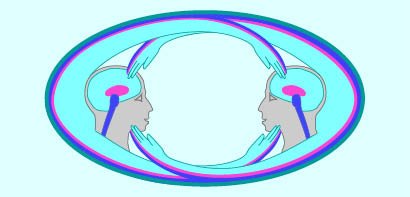Endings are important. The wrap-up of a therapy session shapes the work of that session, the next session, and the intervening time. Therapy happens before and after, as well as during the session. Effective endings support the client-therapist relationship and the therapeutic process. A well-ended session also sets a client up to meet the demands of the rest of their day.
I like to close a session with a little time for the following questions: “What was particularly useful today? And what, if anything, got in the way?” I suggest that the client start with what got in the way. I also let clients know that no answer, or answers that comes days later are welcome.
As a therapist in this dialogue, I receive valuable information about the client, and about myself as a therapist committed to self-reflection and learning. I find that ending sessions this way cultivates collaboration, empowers the client and builds relational skills. These two questions are useful for both therapist and client for many reasons.
1. By articulating what was important, we are both more likely to remember it.
2. I want to know if something I did as a therapist was helpful to that client, and possibly do it again in a future session. And if something I offered got in the way of their process, I want to avoid it in the future.
3. If we agree on what was particularly important, then I know we are on the same page and I can trust that I am reading the client accurately, so far.
4. If we see different things as important, it means either I have another perspective to offer, or that I can update my model of who I think the client is, and what will be helpful to them.
5. For clients, this is a process of shared reflection. Speaking, hearing and correcting their own history helps them build identity, which is often a neglected developmental task for everyone, especially empaths.
6. Developing an observing ego is a crucial relationship skill. The opportunity to articulate how the session was for them develops an observing ego.
7. Inviting the client to share their assessment of the session empowers their most adult self to collaborate in the therapeutic process. This increases their capacity to drive their process.
8. Meta conversation, in the sense of taking inventory of what worked and what didn’t, is a good way to scaffold a person out of deep, vulnerable experience and toward navigating the outside world with an adult ego on board.
I am always interested in what works well in therapy and what needs refinement and adapting. What works well for you at the end of sessions? If you decide to experiment with the questions I pose above, I’d be delighted to hear what you notice during the dialogue and afterwards.
Be good to yourself,
Beth
